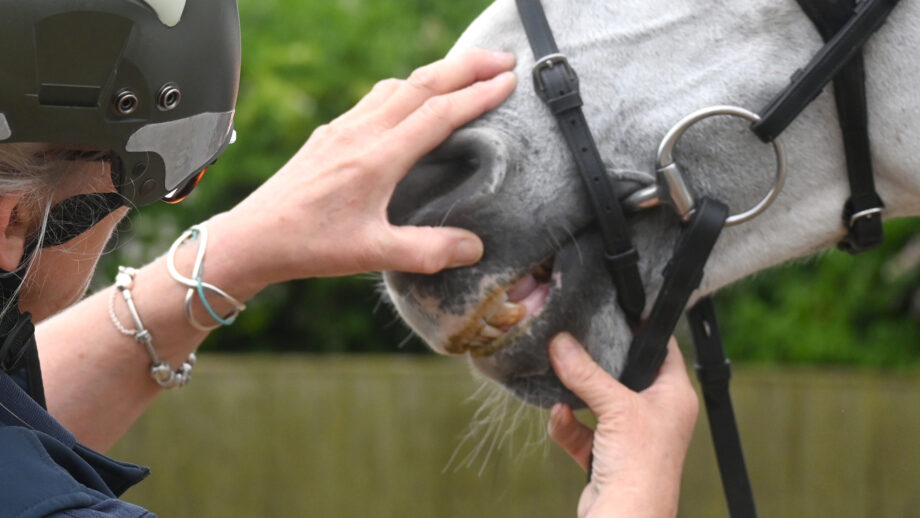Horses are extremely good at hiding pain. If they feel discomfort most adapt their way of going and soldier on. As the horse changes its way of going, its performance is likely to be adversely affected.
Discomfort in the mouth can affect the way the head – a very heavy weight on the end of a long neck – is carried. Compensation can cause tension in the jaw joint (temporal mandibular joint or TMJ), which in turn affects the poll, neck and back.
To try to avoid pain from its teeth, the horse may
- go better on one rein than the other
- resist contact with the bit when being ridden
- have slight stiffening through the back
- display a general unwillingness to work.
Sharp teeth frequently cause cuts or ulcers to the inner cheeks and/or tongue. Tongue ulcers are exacerbated by pressure from the bit, while nosebands, bit ringsor cheek pieces often irritate cheek ulcers.
The horse needs to slide its lower jaw forwards when lowering its head to work on the bit, or to graze. Anything affecting this can cause pain and tension.
If a horse has dental overgrowths it will have to open his mouth to slide his lower jaw forward. A tight noseband will prevent the mouth opening and exacerbate the problem.
Regular inspections and routine rasping by a qualified practitioner will alleviate many of the dental problems before they can cause damage.



